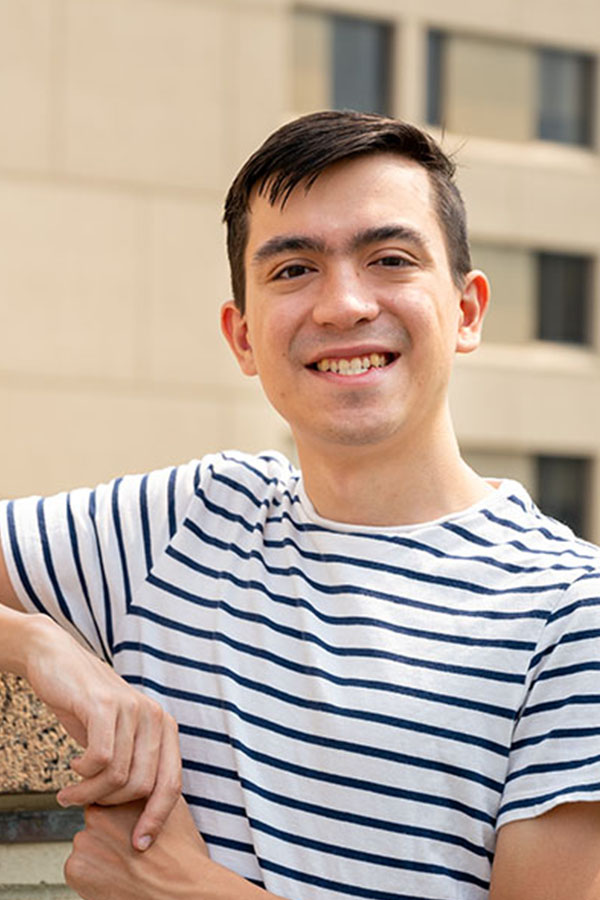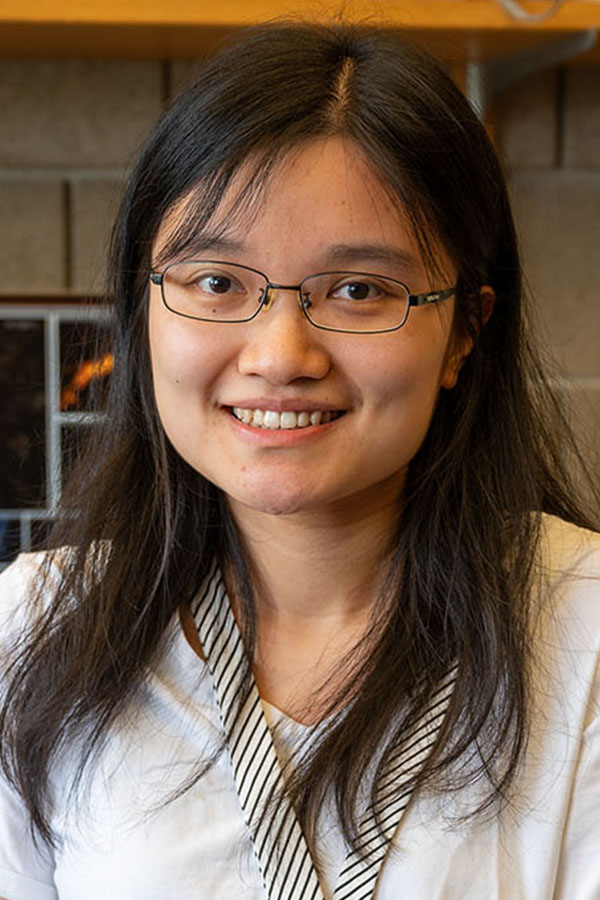

Matthew Ho Wins Peoples Fellowship
Physics Ph.D. candidate Matthew Ho has received the John Peoples, Jr. Research Fellowship in Physics to support his research and publications.
Ho applies machine learning to observational cosmology. He uses deep neural networks to model the relationship between galaxy cluster masses and their observable properties in cosmological simulation data.
“To constrain cosmology using cluster abundances, the next-generation of large-scale sky surveys will require robust and efficient methods for recovering cluster masses from sparse observables,” Ho explained. “The new automated machine learning methods that we are developing in my thesis research will be vital tools well-positioned to fit this demand for current and upcoming surveys.”
“Matthew has strong data science skills and has developed and applied Bayesian neural networks for estimating posteriors/uncertainties for inference with deep learning,” noted Ho’s advisor, Associate Professor of Physics Hy Trac. “He is currently applying his approach to infer the mass of the famous Coma cluster, where Fritz Zwicky first postulated the existence of dark matter.”
■ Ben Panko

Yueying Ni Wins McWilliams Fellowship
Physics Ph.D. candidate Yueying Ni has received the Bruce McWilliams Graduate Fellowship to support her research and graduate studies. Ni’s research in the lab of Professor of Physics Tiziana Di Matteo is focused on creating cosmological hydrodynamic simulations to study the evolution of galaxies and the supermassive black holes in the early universe.
“A high redshift quasar is one of the most mysterious objects in astrophysics, playing a crucial role in the reionization epoch of the universe,” Ni said. “The large volume cosmological hydrodynamic simulations I developed can help us to understand the origin and growth mechanisms of these rare objects.”
Ni is also working on developing super-resolution cosmological simulations with deep learning techniques to model the evolution of the universe. “It would substantially alleviate the computational cost incurred by large cosmological simulations and help us to explore new and interesting physics in universe evolution,” she said.
■ Ben Panko

Michael Andrews Receives Graduate Student Research Award
Physics Ph.D. candidate Michael Andrews has received the 2021 Guy C. Berry Graduate Research Award.
“Michael is one of the two best graduate students who I have worked with in my 20+ years at Carnegie Mellon (and I was fortunate to have been able to work with a few really good graduate students),” Professor of Physics and Mellon College of Science Associate Dean for Faculty and Graduate Affairs Manfred Paulini wrote in nominating Andrews for the award.
“My research involves developing and fundamentally rethinking how to apply artificial intelligence (AI) techniques in physics experiments by running them on ‘raw’ data instead of the heavily processed variety that more commonly gets used by experimentalists,” Andrews said of his work on the Compact Muon Solenoid experiment at CERN. “These techniques have resulted in breakthrough tools that are enabling the detection of hidden particles once deemed impossible to detect, paving the way to potential new discoveries.”
■ Ben Panko
